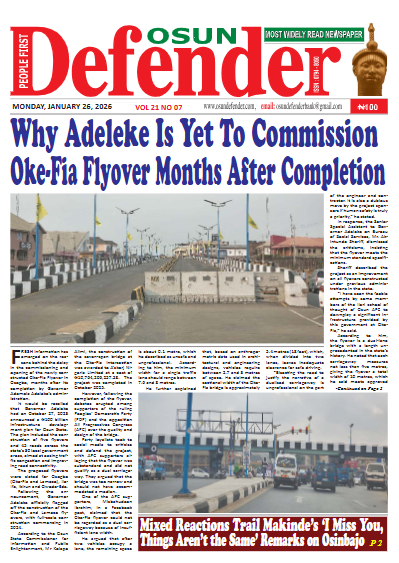WE are all living witnesses to the monumental challenges that Nigeria and Nigerians face today. Therefore, rather than list or lament about them, let us rethink our attitude to them. The one prevalent attitude that will yield no result is the belief that a messiah is coming to help us out.
No messiah is coming. Full stop. What next?
The understanding that no messiah is coming, either in the form of a President by election or coup d’état, should be a sobering call to duty for every enlightened citizen to rethink our situation in all ramifications, and to act.
For one, we have a compound problem with poverty and ignorance among majority of Nigerians, even among so-called ‘educated’ citizens who merely went to school but had little or no education. Secondly and accordingly, very few can resist material and financial inducement when approached with senseless options or evil errands despite their conscience. Thirdly, we are stuck at best with 3 or 4 political parties with capacities (2 being the most capable) and whosoever they choose for us is what we are stranded with and called upon to vote for (President, Senators, Federal Representatives, Governors, State Lawmakers, Council Chairpersons); and they rarely ever choose the best as all kinds of considerations determine their choices other than capability to solve Nigeria’s problems.
Fully appreciating the above scenario as we approach a season of general elections, in an atmosphere of grave security challenges and deep-seated sectional agitations, is a call to activism by all enlightened and patriotic citizens. They have a duty to assume leadership responsibilities within their various social, cultural, religious, community, trade, professional associations; to talk to, convince and mobilise large members therein, for the needful.
The need for the survival of our country and its stunted democracy should be our first priority with robust, dispassionate discussions on our current predicament, the root causes and the most sensible solutions – bottom up, followership to leadership. Secondly, whereas the key solutions will take years of efforts, what are the choices available presently based on our understanding of the candidates across all political parties being showcased, irrespective of religion, ethnic background?
Then, we face the main task of engaging the candidates with satisfactory backgrounds and recognized commitments to clearly stated agenda! Afterwards, initiate the process of organisationally committing those candidates to certain short-term policies that will, at least, allow the state or nation to escape suffocation and live again. For instances, why should we not be able to refine our crude oil and harvest all the ensuing benefits, including solutions to power generation? Why should cost of running government be more than what governance delivers? Why have we failed consistently to explore mechanised agriculture to engage millions of youth for jobs, even if we cannot do anything about Ajaokuta iron and steel, and why not? Why are we failing to publicly and promptly punish crimes and corruption committed in full public glare, confessed and confirmed, and to deliver justice? Why should we not be able to devolve power, and if not write a new constitution but amend it profoundly to allow states and local governments take control of all they need to take control of? Knowing the value of education, why should we not place premium on it, any strategy whatsoever, in this knowledge-age of Information and Communication Technology and veer our youths’ proficiency therein from crime and fraud into a harvest of prosperity for all? There are endless possibilities in our capacity, even in a four-year term.
We know the background and disposition of all the major contestants, and no sweet lies nor material, monetary inducement should dissuade us from mobilising sensibly: for committal of the best individuals across parties, and mobilisation for their emergence. Finally is engaging them daily for the next four years on those commitments, backed throughout with loud applauses and firm protests as need be.
We can thereby be our own messiahs, perhaps in no distant future, we can have a democracy that is no longer a demonstration of craze, and a society in which there is hope for tomorrow, instead of unending “sorrow, tears and blood.”










